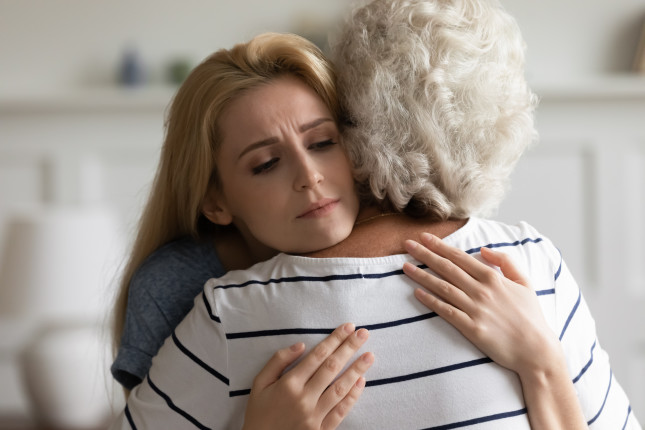-
Covid-19 // Dot-Mom // On the Beat
Caring for Those Who Give Care: How COVID-19 Created a Crisis for Caregivers
December 22, 2021 By Claire Hubley
“We’re always coping with a change,” said Denise Brown, Founder of the Caregiving Years Training Academy and a caregiver for her elderly parents. “And the change is often outside of our control.” She spoke at a recent event focused on the caregiving crisis, hosted by EMD Serono, the healthcare business of Merck KGaA, Darmstadt, Germany in the United States and Canada. When the doors to daycares, elder day residences, and adult care facilities closed at the start of the COVID-19 pandemic, many Americans had to step into caregiving roles. “We’re doing our best to manage the change and keep going,” said Brown. “Because so many people rely on us and depend on us, we have to keep going.”
“Many of the stresses associated with caregiving have been around a long time, but COVID-19 upended healthcare systems, and caused substantial disruption for unpaid family caregivers,” said Heather Connor, Head of Global Communications of Healthcare at EMD Serono. Since March 2020, the needs of caregivers have risen both in the number of caregivers and caregiving hours needed. Globally, 20 percent of current caregivers became caregivers because of the pandemic, and since then, their time spent caregiving has increased from 21 to 28 hours per week. As a result of the new demands on caregivers, their mental, physical, and social health have suffered along with their financial and professional well-being. For the many young people, including some who became unpaid caregivers for the first time, the stress of their new responsibilities amplified their stress due to the pandemic. “So caregiving doesn’t stop even though we have other really significant major life events,” said Brown.
In fact, 68 percent of caregivers said that the pandemic worsened their mental health, said Connor. The pandemic even gave me my first anxiety attack, said Nayma Guerrero. She found herself overwhelmed by the news and fear of the unknown. Guerrero is a full-time student, works full-time, and is a caregiver to her two siblings, who are both on the autism spectrum. She finds herself facing difficult decisions on a regular basis, balancing her siblings’ needs with her own responsibilities to school and work. Sometimes you just have to take on the role of caregiver for a sibling, said Guerrero.
Providing emotional support to others resulted in “coping overload,” said Brown. Three weeks after her mother had a heart attack, her brother died. A day after his funeral, her father fell. Brown has been unable to take time out to grieve the loss of her brother due to the constant need to support her parents. There’s always something else that happens, she said.
However, policy solutions may lessen the stress on unpaid caregivers. “There are policy interventions and then there are just culture interventions,” said Adrienne Schweer, a Fellow at the Bipartisan Policy Center. The Family First Provider’s Response Act was the first major policy support for families who were struggling, but it did not cover adult day centers, elder caregivers, or new parents. However, the Build Back Better Act, which at the time of the event had passed the House of Representatives, would expand on this support to include paid family leave, free elderly care, and tax credits to help unpaid caregivers.
Besides government policy interventions, workplaces can also provide their own support to employees who take on the role of caregiving when not at work. “In order for our businesses to continue, we have to support the working family caregiver,” said Brown. “And if the work is already happening in an informal way, why not formalize it and reward those employees who are just excelling at it already?”
Read more:- COVID-19 has disproportionately worsened women’s economic, mental, and physical health status.
- How the pandemic forced a new generation to take on caregiving.
- Working women suffered more financial and safety hardships than men during the pandemic.
Sources: EMD Serono, Ogletree Deakins, The White House.
Photo Credit: Rear close up view aged grey-haired mother hugs her grown up daughter. fizkes/Shutterstock.com
 A Publication of the Stimson Center.
A Publication of the Stimson Center.



